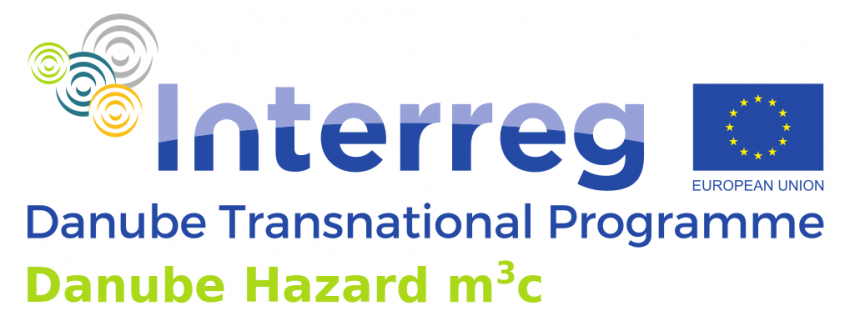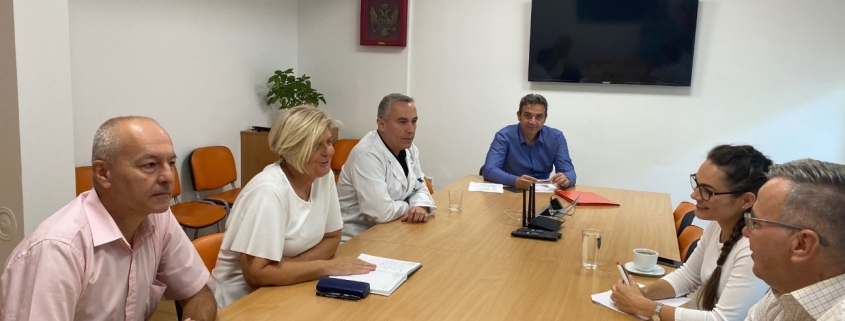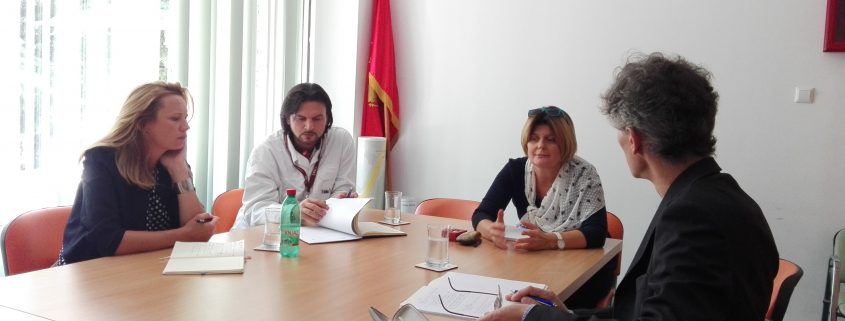About 80% of all marine litter reaches the sea from land-based sources, transported by rivers, and the Danube River Basin is no exception. Plastics, which were once perceived as non-degradable, actually break down into microplastic particles when exposed to sunlight and fluctuating temperatures. This realization has prompted a heightened focus on addressing microplastic pollution in rivers.
The AQUATIC PLASTIC (AQPLA) project’s aim is to provide a thorough database and methodology to map riverine plastic waste, using artificial barriers, such as Hydroelectric Power Plants (HPPs) and remote sensing technologies as tools to measure, monitor and divert riverine plastic waste accumulations from nature to landfills or rather back in the loop.
The project also plans on identifying high risk waste leakage points via remote sensing methods and to find innovative solutions for large scale extraction and recycling of riverine litter and waste accumulated in front of HPPs.
AQPLA focuses on developing comparative monitoring methods to assess the overall size, volume, and combined mass of floating riverine litter accumulations. By providing reliable and user-friendly methods to estimate the size and composition of waste accumulations in rivers, AQPLA offers an additional tool for managing artificial water engineering structures. This helps estimate the costs of mitigation and river cleanup interventions more accurately. Additionally, AQPLA aims to assist the water sector by offering low-cost, high-efficiency professional river cleanup technologies. These technologies not only halt pollution waves but also utilize the renewable energy of the river’s flow to separate riverine litter, thereby reducing the overall costs of cleanup operations.
Pilot river cleanup activities will be organised in downstream countries, in the Sava Basin to spread the successful approach of river cleanup actions and prevention efforts in upstream countries of the Danube Basin.
The project focuses on the following 4 areas:
- Microplastics: creating and testing cost-effective monitoring methods to detect microplastic pollution in fluvial systems enabling data comparison and collaboration among different entities across borders.
- Macroplastics: testing remote sensing monitoring and quantification methods for riverine waste accumulations to help the early detection of plastic flood events and environmental catastrophes; Aiding HPPs manage large riverine litter accumulations by providing guidance on monitoring and extraction while also making waste extraction profitable through game changing recycling protocols for intercepted and selected riverine plastics.
- On-field commitment: organising various type of pilot cleanup actions at high-risk leakage points and hotspots identified by remote sensing technologies including small scale (for inclusion of locals) and large, industrial-scale cleanups at landfills and dumps – where authorities will be notified to join and discuss possible ways of restoration.
- Dissemination and capacity building: by engaging stakeholders in data collection, methodology testing and cleanup pilot actions the solutions above can serve as valuable evidence for policymakers, while also expanding the transnational RiverSaver community trough field-based trainings and interactive roundtable events to establish their strong commitment.
The Partnership
The AQUATIC PLASTIC consortium consists of 13 partners and 19 associated partners from 10 countries, representing a diverse range of stakeholders dedicated to address plastic pollution in the DRB. The consortium includes ministries responsible for legislative matters, NGOs actively involved in field activities, universities committed to scientific research, water authorities, national laboratories and public research institutions engaged in water quality monitoring and preservation.
Plastic Cup Society, the lead partner and the brain parent of the Plastic Cup initiative, leads the AQPLA partnership. Since 2013, the Plastic Cup has removed nearly 300 tons of riverine litter from natural waterways and diverted another 700 tons away from rivers and into the legal waste management system.
The International Commission for the Protection of the Danube River (ICPDR) and the Hungarian Ministry of Foreign Affairs and Trade (MFAT) as Priority Area Coordinator for EUSDR PA4 are key stakeholders of water quality issues within the DRB.
The below listed group of stakeholders represent diverse perspective and expertise, ensuring comprehensive coverage of the project’s target areas, strongly focusing on the Balkans within the Danube River Basin.
Interreg DRP Financial Support
Total Project Budget: 2,166,493.5 EUR
Interreg Funding: 1,733,194.8 EUR
Project Partners
| Country |
Name |
| AT |
University of Life Sciences and Natural Resources, Vienna |
| BG |
Institute of Oceanology – BAS |
| BIH |
Citizen association “Eko centar” Visegrad |
| HU |
Plastic Cup Society (Lead Partner) |
| Association of Environmental Enterprises |
| General Directorate of Water Management |
| ME |
Center for Ecotoxicological Research Podgorica |
| Ministry for Ecology, Spatial Planning and Urbanism Directorate of Ecology and Climate Change |
| RO |
Multisalva Association |
| Mare Nostrum |
| RS |
Faculty of Technical Sciences Novi Sad |
| SI |
Institute for Water of the Republic of Slovenia |
| SK |
Water Research Institute Slovakia |
Associated Project Partners
| Country |
Name |
| AT |
International Commission for the Protection of the Danube River |
| via donau – Österreichische Wasserstraßen-Gesellschaft mbH |
| BIH |
Institute for Water Management |
| HR |
Croatian Waters |
| Josip Juraj Strossmayer Water Institute |
| HU |
Ministry of Foreign Affairs and Trade |
| North Hungarian Water Directorate |
| Middle Tisza District Water Directorate |
| MVM Hydropower Plant Ltd. |
| RO |
Satu Mare County Administrative-Territorial Unit |
| Ministry of Environment, Waters and Forests |
| RS |
Serbian Environmental Protection Agency |
| SI |
Hydropowerplants on Lower Sava |
| Ecologists without borders association |
| Slovenian Environment Agency |
| SK |
Slovak Environment Agency |
| Slovak Environmental Inspectorate |
| Ministry of the Environment of the Slovak Republic |
| UA |
Recylable Materials Collection Station, Proektna, 3 |
Website: https://interreg-danube.eu/projects/aquatic-plastic
Facebook: https://www.facebook.com/aquaticplastic
LinkedIn: https://www.linkedin.com/showcase/aqpla





























